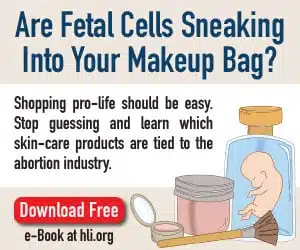Lawmakers Move to Ban Pornography
“Finally, brothers, whatever is true, whatever is noble, whatever is right, whatever is pure, whatever is lovely, whatever is admirable–if anything is excellent or praiseworthy–think about such things.”
― Philippians 4:8
This article is not about social media. But I’m going to begin by talking about social media, because doing so might help us understand better the main topic of this article, i.e., legislative bans on pornography.
An increasing body of evidence is showing that there are skyrocketing levels of anxiety and depression among children and teens. As with any complex phenomenon, there are likely a variety of reasons for this spike in mental illness. However, more and more studies are pointing the finger at one major cause: social media.
One researcher recently compiled all the major studies on the topic, admitting that while he was initially highly skeptical about the harms of social media, he has since changed his mind. “[T]he rise of social media has had disastrous effects on the mental health of young people,” wrote Richard Hanania.
As Jonathon Haidt, one of the leading experts on the relationship between social media use and various mental disorders recently wrote, “There is now a great deal of evidence that social media is a substantial cause, not just a tiny correlate, of depression and anxiety, and therefore of behaviors related to depression and anxiety, including self-harm and suicide.”
Indeed, the research pointing to the harms of social media, especially on teens, is so convincing, that recently a House Republican introduced a bill in Congress that would ban anyone under the age of 16 from using social media.
Silicon Valley’s Brilliant Manipulators
People nowadays tend to be extremely suspicious of any effort to “ban” things using the power of the government. This is because of the dominant ideology that freedom is the highest good, and that freedom is best defined as the unfettered ability to do whatever we want. It is having many choices that makes us free. The more choices we have, the freer we are. Thus, banning anything makes us less free.
As I have written in the past, however, this is very different from the view of freedom embraced by the Church and many saints. St. Anselm famously defined freedom as the ability to choose to do the right thing. In other words, freedom is not found in an abundance of choices, but rather in choosing what is actually good for us.
As Christ said, it is the truth that will set us free. Our ability to choose is not, in itself, the fullness of freedom: rather, it is when we use that ability to attain truth that we are most truly free.
Freedom is the power, rooted in reason and will, to act or not to act, to do this or that, and so to perform deliberate actions on one’s own responsibility. By free will one shapes one’s own life. Human freedom is a force for growth and maturity in truth and goodness; it attains its perfection when directed toward God, our beatitude (Catechism of the Catholic Church, no. 1731).
It might seem paradoxical that many of the tech executives living in Silicon Valley, where almost all of our social media platforms were created, are increasingly sending their children to low-tech or no-tech schools. But what an executive of a social media company knows intimately, and what we only vaguely know, is that his or her company has hired the absolute best psychologists, engineers, and programmers that money can buy, in order to figure out how to make their product as powerfully addictive as possible.
And what these executives also know is that the people who are most easily manipulated are children. It is easier to get children addicted because their brains are developing and therefore malleable. And importantly, if you get them hooked now, it is more likely that they will be addicted for life.
What these tech executives realize is that only by severely controlling the choices their children have with respect to technology, will they create the conditions for their children to be free. Free from addiction. Free from being manipulated by advertisers. Free from all the harmful messages that are so ubiquitous on social media.
Porn: Addiction on Steroids
This is a long leadup to my main point, perhaps. But it’s an important one.
More and more people are waking up to the fact that social media is disastrous for our children. However, shockingly few people are making the connection to the elephant in the living room, i.e., the fact that high percentages of our children are also hooked on high-definition, streaming, easily-accessible, endlessly novel, highly addictive hardcore pornography.
Just like the social media companies, the pornography giants have hired the best psychologists, engineers, marketers, and content creators that money can buy. These geniuses have maliciously designed their websites, marketing, and videos to be as addictive as possible. From the moment a user enters their site, their algorithms are working to figure out what that person likes, and to lure them into watching more and more and more pornography.
The result is that more and more people are spending hours every day parked in front of their computers watching a parade of graphic, often-violent, morally anarchic pornography, of a kind that was utterly unimaginable even just twenty-five years ago, prior to the advent of the Internet.
Time that should be spent with friends or family, or pursuing meaningful, productive pursuits like reading, or developing hobbies, and generally developing in maturity and in virtue, is instead spent in self-indulgent, perverse self-gratification.
Although technically, porn companies are supposed to prevent children from accessing porn, in reality most of them have nothing more than a button that someone has to click to “confirm” that they are 18. Everybody knows that this is useless. Any curious 12-year-old can click it in an instant. Which is why, no doubt, the average age of exposure to pornography now is 11 years old (with many being much younger)!
If access to social media is now proven to cause anxiety and depression, imagine what access to hardcore pornography is doing to the minds and souls of our children! If social media is addictive, imagine how addictive hardcore pornography is! The human sex drive is among our most powerful impulses. But long before children and teens have even had the opportunity to learn to discipline their sexual appetites, and to integrate them into a healthy, virtue-directed sexuality, the porn companies are systematically inflaming their desires, to make them slaves of their “product.”
Signs of Hope
However, there are – thank God! – some signs that things are trying to shift.
In recent weeks and months, there have been a slew of stories about how politicians and regulators all around the world are taking seriously the grave threat that pornography poses to the health and well-being of our children and society.
A few years ago, the UK came very, very close to implementing a plan that would have prevented children from accessing pornography, by putting in place age-verification requirements that cannot easily be bypassed. Unfortunately, the system was never formally launched, after some critics raised ridiculous concerns about “privacy.”
Now, however, some politicians are raising the issue again, urging that the plan finally be implemented. As James Bethell, a Conservative peer in the House of Lords, recently put it: “What we need is an emphatic timetable and clear cut commitment to hard-gated mandatory age verification. The current provisions are a kumbaya aspiration that leaves open too many loopholes, no enforcement and no timetable.”
Australia is also looking at meaningful age-verification requirements. So is France.
All told, sixteen U.S. states have declared pornography a public health crisis. More importantly, some states are taking serious measures to prevent children from accessing pornography. Recently Louisiana became the first state to implement an age verification law. Another eleven states are considering similar legislation.
“Pornography is destroying our children and they’re getting unlimited access to it on the internet and so if the pornography companies aren’t going to be responsible, I thought we need to go ahead and hold them accountable,” said Louisiana State legislator Laurie Schlegel recently. Under the law, she explained, “Someone could sue on behalf of their child; they can sue if children are getting access to pornography.”
One U.S. Senator, Mike Lee, has introduced a bill at the federal level that would redefine obscenity under the Communications Act of 1934 to include pornographic content. The bill would effectively ban pornography in the United States. Another bill introduced by Sen. Lee would implement meaningful age-verification requirements for pornography, thus at least protecting children from this great evil.
“Given the alarming rate of teenage exposure to pornography, I believe the government must act quickly to enact protections that have a real chance of surviving First Amendment scrutiny. We require age verification at brick-and-mortar shops. Why shouldn’t we require it online?” Lee said in a statement.
Lee is not the only prominent federal legislator who has expressed serious interest in banning online pornography.
Protect Freedom: Ban Porn
In introducing his bill to ban social media, Rep. Chris Stewart noted, “There has never been a generation this depressed, anxious, and suicidal – it’s our responsibility to protect them from the root cause: social media.” He added, “The damage to Generation Z from social media is undeniable – so why are there no protections in the digital world? It’s well past time that we take bold, comprehensive action for the sake of our kids.”
I agree entirely with Rep. Stewart. However, I would urge him and other legislators to expand their vision and look not only to social media, but also to the other poison that is stealing the innocence and joy of our children: online hardcore pornography.
“Civil authorities should prevent the production and distribution of pornographic materials,” states the Catechism of the Catholic Church (no. 2354).
This teaching is not, as some people would argue, an imposition on “freedom.” Instead, it is necessary in order to protect freedom: the freedom of our children (and not just children, but all of us) to live in a society in which we are not constantly subjected to the well-calculated machinations of profit-driven pornography empires, who are seeking to hijack our God-given impulses to generate profits.
What these companies are doing – and being allowed to do! – is unconscionable. The ripple effects of having generations hooked on porn cannot be calculated. By allowing the pornographers free access to our children, we are ensuring that many of our children never even have the chance to enjoy normal, happy childhoods.
Instead of spending our time thinking about what is “pure,” “lovely,” and “admirable,” as St. Paul exhorted his readers, so many of us are immersed in a sea of violent, abusive filth. And we have done so little to change this!
Let us be reminded that “there is no true freedom except in the service of what is good and just. The choice to disobey and do evil is an abuse of freedom and leads to “the slavery of sin” (The Catechism of the Catholic Church, no. 1733).
I am grateful to Sen. Lee for tackling this problem at the federal level. I hope that many more legislators will join his efforts. We simply must move past this absurd idea that “freedom” means allowing anything and everything, even if it is poison being pumped at an industrial level into our culture by brilliant, malevolent, profit-driven operators.
The souls and minds of our children are too precious to hand them over to the pornographers.
The pornography industry is one of the great evils of our age. We must do everything in our power to shut it down and end this plague.
As president of Human Life International, Fr. Boquet is a leading expert on the international pro-life and family movement, having journeyed to nearly 90 countries on pro-life missions over the last decade. Father Boquet works with pro-life and family leaders in 116 counties that partner with HLI to proclaim and advance the Gospel of Life. Read his full bio here.








I remember reading in my philosophy class how St. Thomas Aquinas commented that the first effect if the misuse of the sexual faculty is a diminution of the intellect. As I approach the advent of my eighth decade of life, how true I see this statement is. And children, being in a developmental stage of their life are most vulnerable to this. I recall a childhood friend becoming addicted to porno. He went on to become an alcoholic and died prior to 50 years of age.
I would expand the words of St. Thomas to include any illicit seeking after pleasure and I exclude that pleasure which is appropriate for accomplishments in life or one’s state in life.
But this problem is complicated by the use of electronic devices. It has been found that the avid use of wireless communication devices causes a decrease in IQ of about 10 points due to the heavy exposure to microwaves. This means that with the diminution of the intellect, children are losing their ability to reason properly. This is sad. As I grow in age and wisdom, my sorrow increases as I count my neighbors, friends and relatives who have died and/or are suffering because of the use of pornography and/or substance use. It is a heavy and painful cross to bear.
Excellent idea, but will enough congressman join Senator Lee to see it through. I, for my part will talk it up in my arena of the state of Texas. Hope Senators’ John Corning and Ted Cruz join Mr. Lee. If now, why not. Lets see.